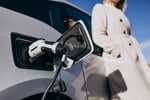It’s nearly 450 days since dealerships were able to open their doors without the threat of Covid-19 causing ambiguity and confusion.
Over the last 18 months, dealerships, OEMs and consumers have become accustomed to restrictions of varying nature, some sometimes landing overnight.
This has had significant knock-on impacts in sales and the ability to plan long-term. How is it possible to put a long-term strategy in place, when, in 24-hours, the entire industry can be turned on its head?
To overcome these difficulties, the industry has had to adapt and embrace the situation, often leaning on digital technologies and tools.
There have been countless examples of how dealerships and OEMs have brought the sales process online at speed, with YesAuto seeing a month-on-month growth rate of over 6% between August of last year, and March 2021.
Working with aggregators, it is now easier than ever. And, it makes it possible for consumers to choose a car, test drive it, pay for it and have it delivered entirely online.
Pandemic's VR boom
However, this process can still be streamlined. Thankfully, with the continued widespread adoption of virtual reality, this process is starting to change.
According to recent reports, the pandemic has seen the sale of virtual reality headsets increase by 350%.
Wanting to escape from the mundane reality of the same four walls, people have taken to using VR headsets to travel, see new locations and really experience something different.
It is thanks to this widespread acceptance and adoption of this technology that car brands and dealers are starting to consider this as a potential avenue to sell to potential customers.
This could become the future of selling cars.
Using VR headsets, consumers can not just see the outside of a vehicle and a few still photos of the interior, they can truly immerse themselves in what it feels like to sit in the car – and own it.
What is the blind spot like? Is the driving position what they’re used to? How big does the vehicle feel when sitting inside? All of these questions could be answered by slipping on a VR headset and travelling, in an instance, to the local car showroom.
Of course, this is still new technology and will take time to see widespread adoption. But, already brands such as Maserati, Jeep, Jaguar, Alfa Romeo, and many more are exploring the potential of this technology.
Last year, YesAuto’s own virtual car show, which enabled users to transport themselves into the vehicles from the comfort of their own sofa, saw more than a million views across the month of August.
Just shy of 100,000 of those viewers went beyond just accessing the car show.
They took the time to virtual sit in the cars, look around their exteriors and in a number instances, engaged directly with dealers around purchasing the vehicle.
As we approach the potential full unlocking of society (touch wood), it will be interesting to see if the industry reverts back to its old ways, or whether tech-enabled, more sophisticated methods of selling will retain their attractiveness to both developers, OEMs and customers.
Given the continued growth rate of online marketplaces, I for one think the former will be the future.
With consumers clearly enjoying the ability to gain these insights quickly and easily, without going through the entire sales process, they’re able to make decisions quicker and more confidently.
Likewise, the widespread acceptance of VR is beneficial to dealers, OEMs and their respective sales teams.
Easier sales
With consumers doing the hard work themselves, narrowing down the vehicles they like and dislike, they will come onto the sales floor with a more solid idea of what they want to buy and so sales should be easier to convert.
This will enable dealers to provide the best possible service to meaningful customers, confident customers who aren’t yet ready to buy, will still be at home doing their homework.
This said, brick-and-mortar dealerships will not be closing anytime soon. The market is still entrenched in traditional ways of operating.
And let’s face it, many people still want to physically sit in the car of their choice before making the second biggest purchase in life.
However, as more and more clever digital technologies and tools come onto the market that provide dealers and OEMs with ways to streamline the inbound requests, while not losing out on sales, it is expect that overtime, a more hybrid sales operation will become the norm.
VR is just one stage of this evolution.
Author: Neil You, general manager, YesAuto
















Login to comment
Comments
No comments have been made yet.